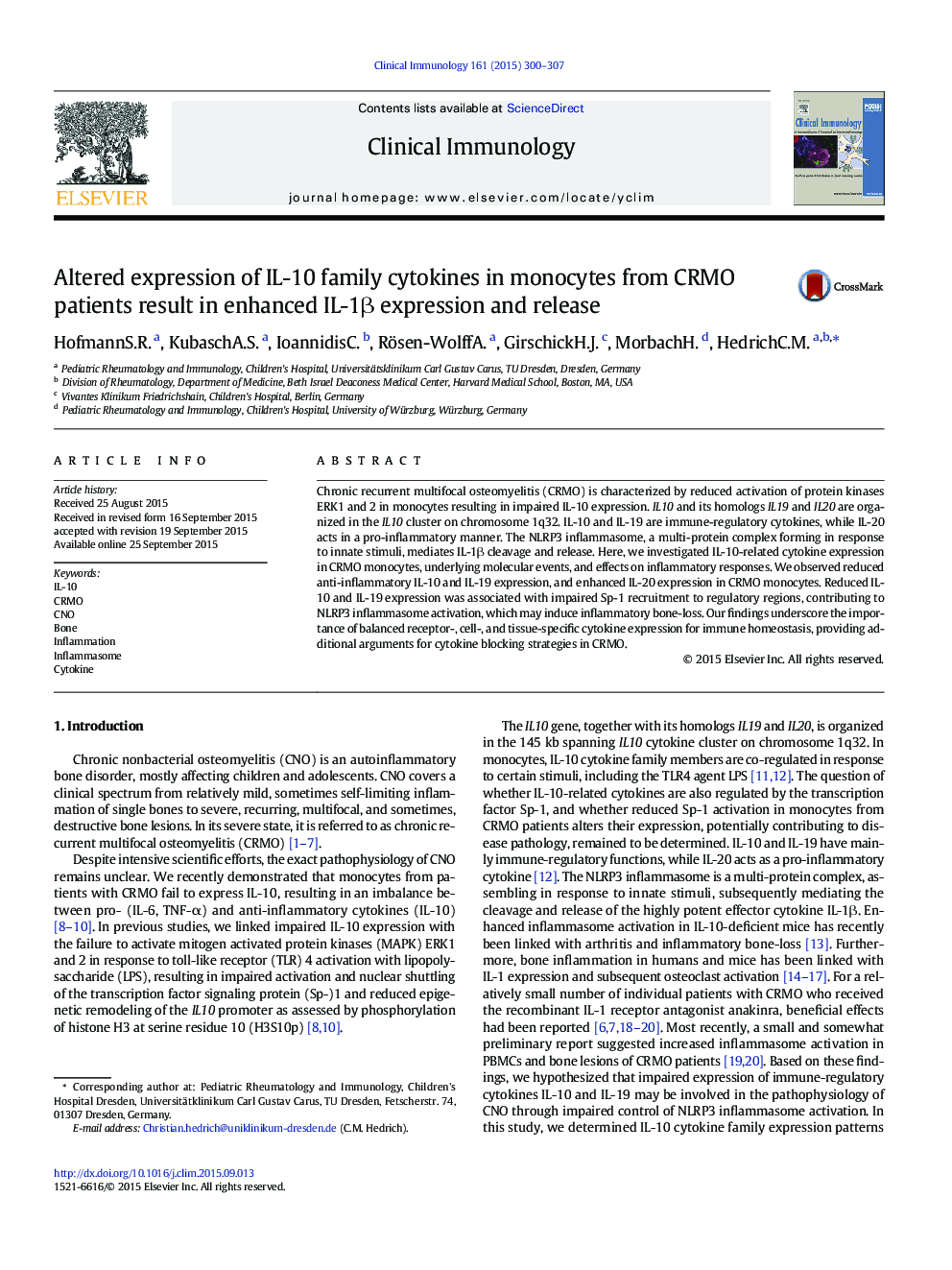| Article ID | Journal | Published Year | Pages | File Type |
|---|---|---|---|---|
| 6087134 | Clinical Immunology | 2015 | 8 Pages |
â¢The expression of IL-10 homologs IL-19 and IL-20 is altered in CRMO monocytes.â¢Impaired Sp-1 recruitment and histone phosphorylation results in failure to express IL-19.â¢The expression of the pro-inflammatory cytokine IL-20, however, is enhanced.â¢Failure to express IL-10 and IL-19 contributes to IL-1β expression and release.â¢NLRP3 inflammasome activation may contribute to inflammatory bone loss in CRMO.
Chronic recurrent multifocal osteomyelitis (CRMO) is characterized by reduced activation of protein kinases ERK1 and 2 in monocytes resulting in impaired IL-10 expression. IL10 and its homologs IL19 and IL20 are organized in the IL10 cluster on chromosome 1q32. IL-10 and IL-19 are immune-regulatory cytokines, while IL-20 acts in a pro-inflammatory manner. The NLRP3 inflammasome, a multi-protein complex forming in response to innate stimuli, mediates IL-1β cleavage and release. Here, we investigated IL-10-related cytokine expression in CRMO monocytes, underlying molecular events, and effects on inflammatory responses. We observed reduced anti-inflammatory IL-10 and IL-19 expression, and enhanced IL-20 expression in CRMO monocytes. Reduced IL-10 and IL-19 expression was associated with impaired Sp-1 recruitment to regulatory regions, contributing to NLRP3 inflammasome activation, which may induce inflammatory bone-loss. Our findings underscore the importance of balanced receptor-, cell-, and tissue-specific cytokine expression for immune homeostasis, providing additional arguments for cytokine blocking strategies in CRMO.
